Modern agriculture has transformed into a great industry due to innovative approaches and new scientific and technological improvements in various areas of agricultural science.
From the days of the Green Revolution to the present era of Gene Revolution, farmers, farming communities together with academics, agricultural researchers, scientists and technicians, have significantly contributed to advancing modern agricultural research and productivity around the globe.
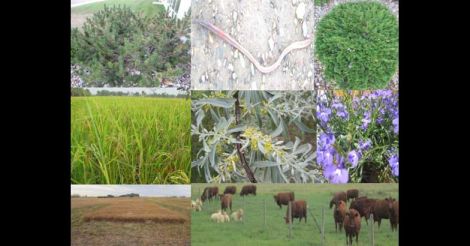 Photo: Saikat Kumar Basu
Photo: Saikat Kumar BasuMajority of the global human populations, irrespective of whether from economically backward, developing and underdeveloped countries to highly industrialized and economically powerful western nations have reaped some benefits from modern agriculture for sure.
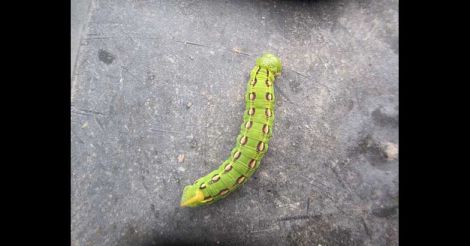 Photo: Saikat Kumar Basu
Photo: Saikat Kumar BasuAgriculture, no doubt, has reshaped human history, growth and development, and made significant progress in transforming lives and livelihoods across the planet. However, at the same time, it has been impacting our natural ecosystems and environment in a negative way due to excessive use and over applications of numerous, slowly degrading, long shelf life, highly toxic chemicals (used as synthetic chemical fertilizers, pesticides, growth regulators etc) into fresh and marine water aquatic systems via rain and/or irrigation water. Some of these toxic chemicals are also percolating deep into the soil and finally accumulating into our groundwater resources, polluting them irreversibly.
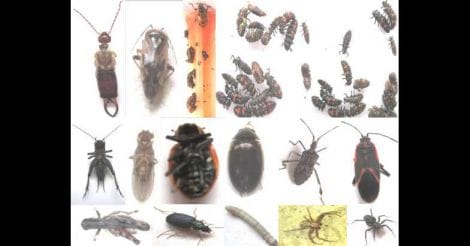 Photo: Saikat Kumar Basu
Photo: Saikat Kumar BasuIndiscriminate, unrestricted and under-monitored spraying regimes of agricultural chemicals used by many irresponsible farmers in developed, developing and underdeveloped nations are one of the worst offenders in damaging the local ecosystem, environment and biodiversity. The broad range of pesticides, insecticides, fungicides and herbicides that are being used extensively in our agricultural fields not only kill the target pests (insects, fungi and weeds) but also impact the numerous non-target species (insects, amphibians, reptiles, fishes, birds and small mammals) in significantly high numbers often crashing their natural wild populations or even altering their population dynamics.
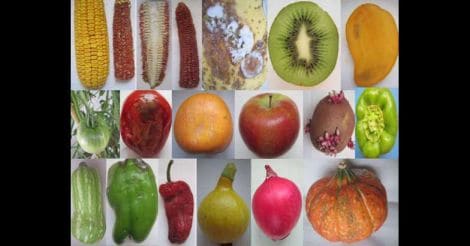 Photo: Saikat Kumar Basu
Photo: Saikat Kumar BasuOver application of pesticides is also generating resistant new strains of insects, fungi and weeds challenging modern agriculture and hampering agricultural productivity in several parts of the world. The soil microbiota is drastically getting altered due to over application of synthetic chemical fertilizers and toxic pesticides by altering and killing various soil microbes as well as changing soil physical and chemical characteristics. This has the danger of changing the soil properties in the long term and impact agricultural productivity. Several highly resistant verities of pest insects, fungi, bacteria, viruses as well as superweeds are putting modern agricultural advancements to challenging questions.
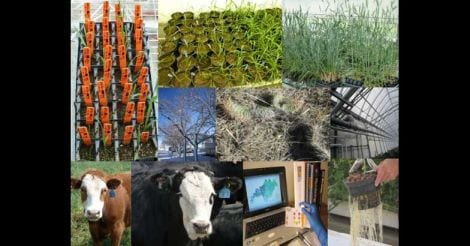 Photo: Saikat Kumar Basu
Photo: Saikat Kumar BasuOne of the worst hits in this new regime of chemical fertilizers and super pesticides are the insect pollinators, including honey bees, native bees, beetles, flies, moths and butterflies. Several other farmer-friendly insect and fungi species that helped in natural control of insect pests by devouring the adults and juveniles or their eggs and larvae are being rapidly eliminated from the natural ecosystems, helping new resistant varieties of microbes, insects and weeds to replace them at an alarming rate. Such mutated and resistant varieties will need even further inputs in terms of toxic pesticides in the near future for efficient eradication and thereby has the potential to further damage the natural ecosystems in the worst possible manner. The consequence of this has been also the loss of our natural agricultural biodiversity. Several large multi-national companies are holding major stakes in this global agricultural industry and their products are the only big brand names controlling the global agricultural markets.
Whether it is seed, fertilizer, pesticide or farm machines, farmers and farming communities across the globe are becoming increasingly dependent on them as their regular supply lines. Hence, various local animal and plant germplasms preserved across several generations as different local (indigenous) breeds, stocks, genotypes, landraces, varieties, and locally adapted cultivars are being unfortunately lost. The glory of modern synthetic chemicals and industrial agriculture have been replacing multi-crop production systems into mono-crop regimes, making agricultural even more vulnerable to resistant pests, contagious diseases and global environmental changes (such as global warming, climate change and environmental pollution).
The agricultural pollution combined with overharvesting is also impacting several key estuarine and marine ecosystems across the globe. Several species harvested from the sea have been significantly impacted by agricultural pollution and are in short supply, challenging us with food security in the not so distant future.
New strategies and policies need to be implemented for agriculture to protect the natural agricultural biodiversity of various nations across the globe. There need to be significant initiatives involved both at the local, regional and international platforms to protect agricultural biodiversity. The loss of honey bees and native bees will not only impact the apiculture industry, but agriculture at large since a vast majority of agricultural crops is dependent on bees for their natural pollination. If the natural insect pollinators are all gone, then the crops will be impacted in terms of production and sustainability. Comprehensive policies securing the livelihood of poor and marginal farmers from developing and underdeveloped nations and their natural agricultural biodiversity needs to be protected. Unless we wake up and take strategic measures to protect such natural agricultural biodiversity now, we will be questioned tomorrow by our unfortunate next generation for our failure to secure their future.
(The author is a Canada and India based freelance journalist specializing in global geo-political, strategic and foreign policy issues, science & technology and environment & conservation related themes.)
Also read: Call of the Wild: of agricultural biodiversity and potential food crisis

























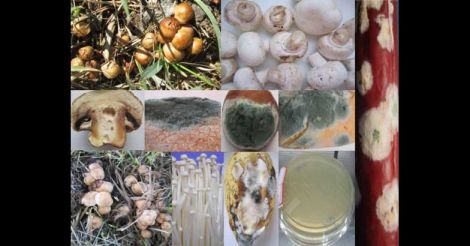 Modern farming practices: good news for food security, bad news for sustainability. Photo: Saikat Kumar Basu
Modern farming practices: good news for food security, bad news for sustainability. Photo: Saikat Kumar Basu
